Interview with Aman Agrawal – MUST GARMENT CORPORATION LTD
By: Kohan Textile Journal
The Must Group was founded in 1981 and started as a small family business with one office and a hand full of employees in Hong Kong. Today Must is an international corporation with more than 20,000 associates. With global offices and manufacturing facilities located in the USA, UK, Hong Kong, China, Bangladesh and Jordan.
Please let us know more details about MUST Garment company, history and success story.
Between our three manufacturing complexes in Bangladesh and Jordan, we produce 60 million garments annually with a workforce of over 20,000 people from five different nations.
Sidney Apparels Ltd is located in the port city of Aqaba in the PEB Export Processing Zone and is duty-free to the USA. Producing 20 million garments annually the facility is home to associates from over 5 nations. Dormitories are located in the Aqaba Development Corporation Complexes for the entire workforce.
Our two manufacturing complexes, Lenny Apparels Ltd and Kwun Tong Apparels are located in the Dhaka Export Processing Zones and Adamjee Export Processing Zones, Dhaka. They cover an area of 49 acres, with built-up facilities in excess of a million square feet and produce 40 million pieces annually.
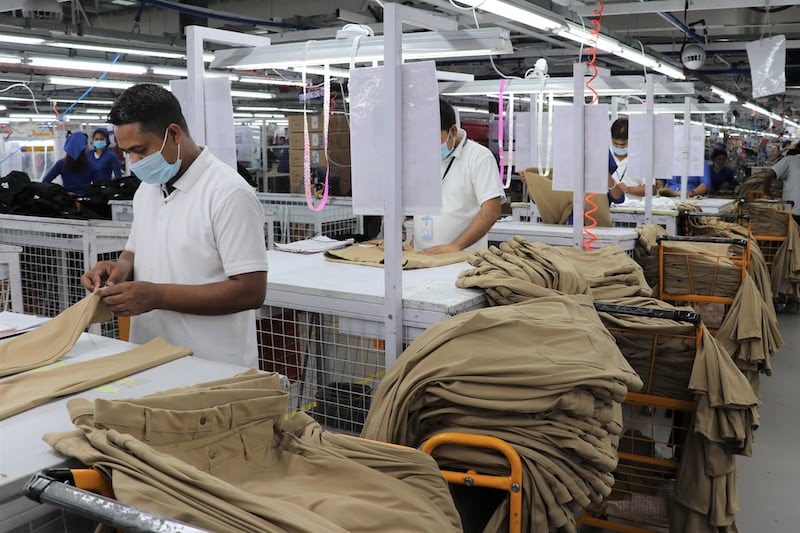
Our facilities use cutting edge technologies and high social and environmental standards. ‘Moving the needle’ is our company ethos, always driving forward design and technology.
Our business continues to expand at a very stable annual rate of 15-20 per cent per year. We believe in building the business brick by brick and step by step, and we do not believe in sacrificing quality or management by over-extending ourselves. Our business is built on reliability and service, and we continue to enjoy the support of our clients; we would never sacrifice this reputation. We do not manufacture any goods outside of our own facilities.
As our chairman and CEO Mr. Sanjeev Mahtani states, “We are committed to building long-lasting partnerships with our customers by offering quality, service, up to date market information and superior garments.”
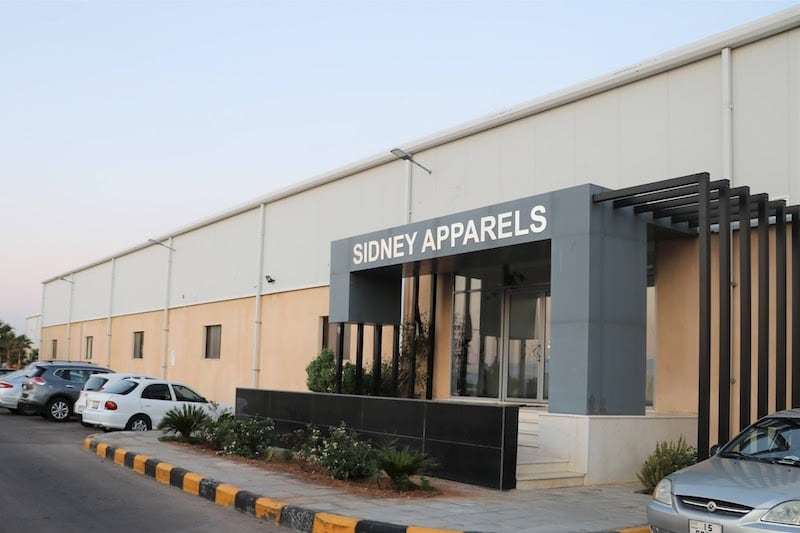
What is your range of products? Which countries are your export market?
A. We are one of the largest manufacturers of bottoms to the US market. Our main product categories are casual pants & shorts, denim jeans, activewear, dress pants and jackets. We make products in both woven and knit fabrics for Women and Men.
Our trend forecasting teams in USA and Europe constantly research the market compiling comprehensive market intelligence reports every month. They evaluate and predict trends, color, fabric and print.
We aim to provide information about what’s working and what’s not from every aspect
• Fit
• Fabric
• Color and Print
• Silhouette
• Wash
• Embellishment
Our teams meet with customers and partake in capsule collections each month in vendor assisted innovation and co-creation of ranges tailored to their specific customer.

With a team of fabric engineers and dying technicians based in Changzhou and Shanghai, China we work with dedicated dying plants. We are virtually vertical with our special spinning techniques. We have developed the finest combed yarns and high-performance yarns using sustainable fibres and digital fabric techniques to minimize waste. Our textile arm develops an exclusive collection each season and works hand in hand with our vendor assisted innovation programs.
With a team of international fashion designers, fabric specialists, graphic artists and trend forecasters based in New York, London and Hong Kong we provide a truly global approach to design.
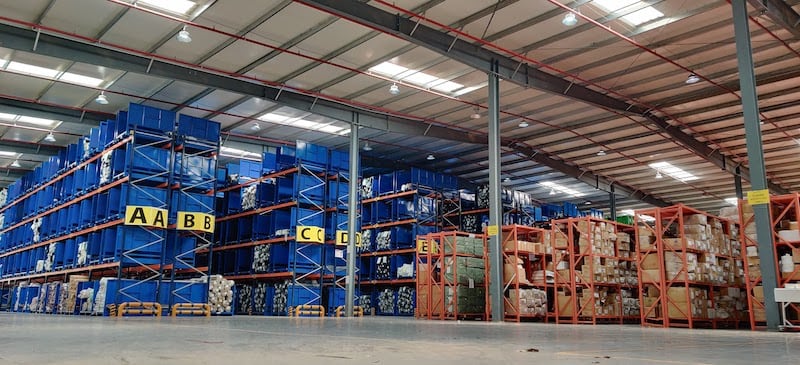
How do you evaluate the Textile and fashion industry in Pandemic period? How do you predict 2021 for textile and garment business?
The ubiquitous pandemic caused due to Covid-19 has affected almost every sector barring very few. Our textile and fashion industry comes under the majority and is hit adversely by the pandemic. Manufacturing sector being the worst hit sector might take 4-5 years from now to get back to pre-Covid levels. But seeing the current medical breakthrough this rebounding time is expected to be lowered to 1-2 years.
It has never been a cake walk for our Textile and especially fashion industry unlike other technologically advanced sectors like IT, OTT etc. Ours is a labour-intensive sector and it is indispensable for our workforce to sit at home and work digitally. We want them to come to our manufacturing locations and work.

China has always been the major supplier for textile raw material. With the pandemic initiating from the root back in 2019, gradually developed into a big tree and extended to the entire global market. With lockdowns imposing in almost all parts of the world during the whole year, the industry got a major setback in 2020. Both manufacturing and consumption of textile and fashion products has declined drastically during this pandemic leaving thousands of businesses affected and millions unemployed.
Like all other apparel manufacturers, we too had to go through a dip in our business during the pandemic. But with agile thought process, timely planning, cost optimization and aligning ourselves to this unusual standard we kept the pace and are now able to run with 70% capacity. We readily adapted to the technological changes the world was going through and stayed in touch with our partners. With proactively forecasting shrinkage in orders, we took the medium term action and reduced capacity to 70% to meet order status. We saw trend of more knit garments this season compared to woven as WFH (Work From Home) culture gained wide popularity. People in US and EU preferred comfortable bottom wear over denims and formal pants & trousers. Moreover, in nearby future, they are less likely to leave their homes and join back their offices with more and more online shifting of video conferences, lectures and meetings.

With digital world coming into prominence, people would be travelling less and many online solutions would gain market share in place of conventional physical ones. For example: 3D virtual prototyping of samples, virtual trade fairs and shows, online webinars, virtual ramp shows involving digital models, etc.
The manufacturing world would seek for innovation and automation in manufacturing processes thus involving less manual workers and reducing the dependency. Sustainability and green fashion would also play a major role.
The brands & retailers have shifted majorly to online business. This is likely to remain same for upcoming year as well. People are still not ready to compromise on their health and go to brick & mortar stores for purchasing. They are happy buying it online and getting delivered to the doorstep.
Technology is evolving at a rapid pace. We have never seen a time like this in our industry. For next 2-3 years, it’s going to be a work consolidation. It’s not going to be advancing in terms of more efficiency or productivity, but it’s going to be more in terms of how we sustain ourselves and evolve from this pandemic. Important aspect is how we will be able to embrace this change in technology. It is not going to be easy but it will help in remaining competitive.
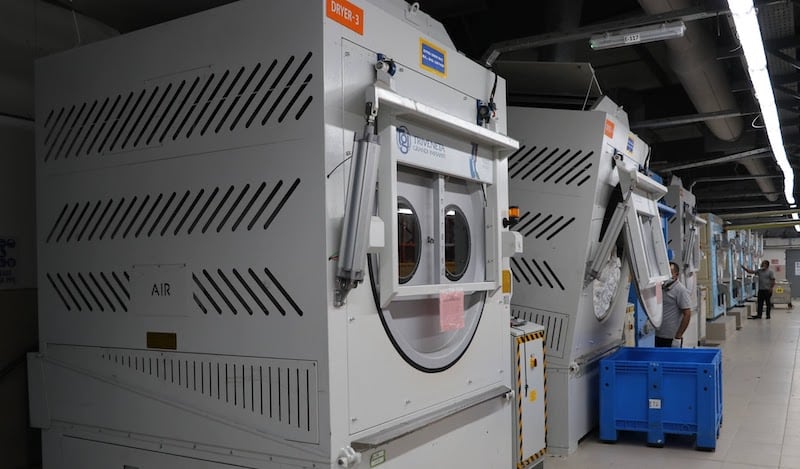
As a manufacturer and exporter company, how do you evaluate textile and Garment industry in Middle East and Africa and its potentials for Future? Do you have export to this region?
The Middle East and North African nations who are popularly known as MENA countries are more likely to gain advantage in nearby future. The reasons behind my optimistic views are many but the prime one being the global supply chain diversification away from China.
China leads the apparel manufacturing business with occupying more than 30% of total garments exported worldwide, in spite of having a huge domestic market. Not only apparel but textile manufacturing of fabric, yarn and fiber too. But slowly due to rise in minimum wages and deteriorating trade relations with US, retailers are shifting away from China.
Other Asian giants like Bangladesh, India and Vietnam are taking advantage of this diversification while MENA countries are yet unable to capitalize on this opportunity. These giants are having lower manpower costs which are an advantage over MENA countries, but there are hindrances too. Bangladesh as we know was already filled up to the brim prior to Covid. India has still not shown considerable intent to capitalize on the market due to the availability of vast domestic market. Vietnam is benefitting a lot from this opportunity.
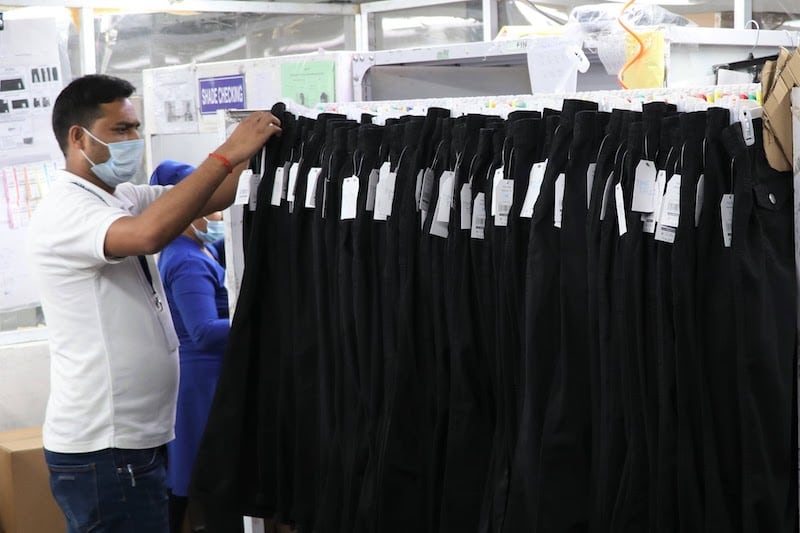
MENA countries are having a major advantage over the other Asian manufacturing giants i.e., geographic proximity and preferential trade agreements to US, Canada and EU markets. Even if MENA countries are able to take 1% market moving away from China, it would amount to $1.5 Billion which would embark the journey of manufacturing in this region. With Covid situation expected to improve with 2021 stepping in this journey will benefit them & they will start getting advantage. I can foresee this market growing exponentially in coming years.
The manufacturers in this region should not only be involved in garment manufacturing; rather they should diversify the supply chain and start looking for vertical operation opportunities from fibers to accessories. As this region is long term sustainable region it will help in overcoming their major drawback of higher manpower costs as we are well aware of manpower requirement in other sectors of our industry.
Currently due to Covid already these nations have realized their capacity with the manufacturing of PPE for domestic market when international borders were shut. African countries will also be benefitted by AFCFTA (African Continental Free Trade Area) too which is expected to commence early 2021.
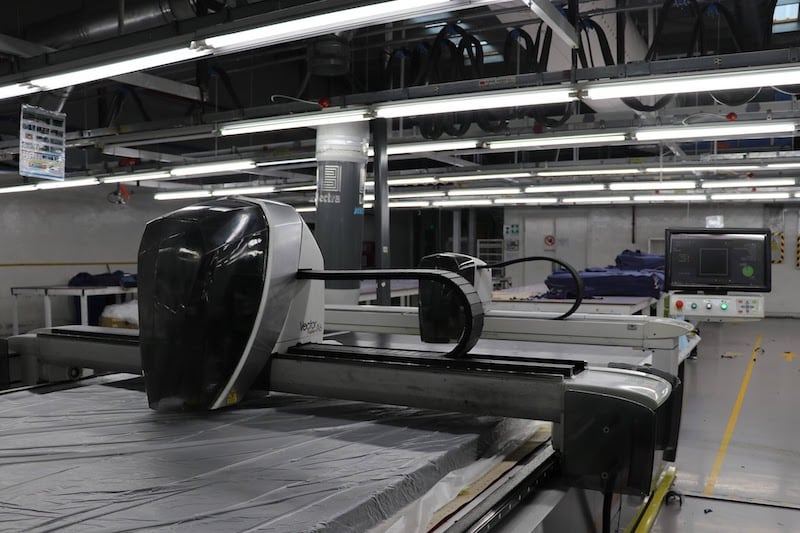
Countries like Ethiopia, Kenya, Madagascar, South Africa, Egypt, Jordan, Tunisia, Morocco and Lesotho have shown tremendous capability in past few years. With Morocco and Tunisia catering majorly EU market while Ethiopia, Jordan, Kenya and Madagascar working with US buyers. African nations are even cost-competitive to other Middle Eastern countries. With FDIs coming in and setting of industrial parks these countries have very bright future opportunities.
Discussing about exporting into this region, I personally believe that this region is not a consuming market but a producing market. Countries in this region are not having immense power of buying like US, EU, China or India. But definitely this region has a lot of potential in manufacturing textiles and garments. No, as of now we don’t have any export to these countries.
COVID 19 shows us we should rely more on sustainability and green products, how we can improve sustainability in Garment and fashion sector? Do you have any special plan for this in Must Garment?
I would like to answer latter half of question prior here. Must’s core vision is to be sustainable in our approach towards anything & everything in our industry. Much before Covid we have done several remarkable projects in this field. One positive which we have taken from this pandemic is that our vision is very apt and will help us in sustaining in the business for long.
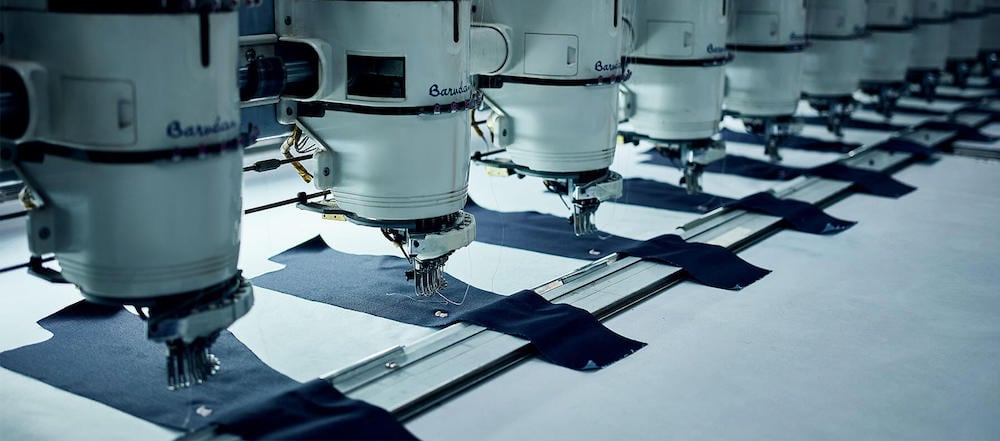
We grasped to communicate well and without barriers of meeting the person physically, we can take decision by organizing meetings digitally. We comprehended to work as a team sitting in different parts of the world whether be in Hong Kong, China, US, or Jordan. We have evolved and strengthened as a team. As we were already on the path of sustainability, this pandemic has enthusiastically shifted us to the top gear.
As we all know our textile and fashion industry comes in top 3 most polluting industries of the world, now is the perfect time to think out of the box and take real initiatives. We as a group have realized this is the time to align all our goals with sustainability and green products as believe it or not it is the need of the hour.
We are driven by our Chairman and CEO Mr. Sanjeev Mahtani’s words “Today when we see pandemic, it just reminds us again & again to conserve our natural resources and how important it is to maintain a safe and healthy atmosphere for our future generations. Sustainability is paramount and we can’t compromise on it. Different upcoming technologies are sustainable.”
We are having a Higg Index score of 73.7% for FEM (Facility Environment Module) which has increased from 51.3% in 2017. Yes we do have plans for improving sustainability at our manufacturing locations and also we have executed some plans successfully too in past 1 or 2 years.
With the use of solar panels and generating energy from renewable sources, providing our workforce with electric buses and planting trees on 80% surplus lands we aim to reduce our carbon footprint significantly. We will reduce global carbon emission by 35.38 MT from 2018 to 2029.
One of our major efforts to achieve this target of reducing carbon footprints is the installation of solar panels for our manufacturing location as well as employee accommodation. We are planning to install solar power plant with a power generation capacity of 3.6 Mega Watt which will probably be highest in Aqaba.
We have purchased new set of industrial washing machines recently which has reduced our water consumption remarkably by 40-50% compared to other machines. This has led to decrease in wastewater generated from our washing department.
We have changed all our lightings from fluorescent bulbs to LED lighting which resulted in a considerable decrement in our energy consumption and made us energy efficient. Moreover, LED lights installment led us to ZERO UV emissions from our light sources. There is no Mercury internally in newly installed lights making them environmentally safe.
We are harnessing natural light through the skylight. During the day time we don’t need artificially generated electricity and we are using a natural resource to lighten up our plant and work area. This decreased our power consumption by 20% during the daytime. Adding to this, we have also installed motion sensors for all lighting, which results inefficient energy usage.
We have a fully operational ETP (Effluent Treatment Plant) installed at our manufacturing location which recycles 100% of laundry wastewater. The completely treated water after checking pH and TDS is reused in our washing process and landscaping. Currently, our complete landscaping is being managed solely by treated water from our ETP.
When it comes to the question of improving sustainability in Fashion industry, I believe our textile and garment sector has a lot of scope to improve on sustainability and aim for Green fashion. First and the foremost aspect is we need to change the mindset of people. They need to be educated about long term benefits of sustainability.
We need to start with top to bottom approach. From recycling of used clothing, renting fashion clothing and accessories to using sustainable, organic and certified materials while manufacturing. It is every individual’s responsibility to return back what we have received.
Now after Covid pandemic has shown us the true picture, we need to change our goals and strive for sustainable manufacturing excellence.




















Congratulation Aman Agrawal
I want to say wow Aman Agrawal , he is my class meet in NIFT Bengaluru- Karnataka India. He is wonderful student at that moment. so, he intelligent during and after the class as I well see there in India. After graduation he is working Must Garment for a year but as I see he know everything about the Must garment see from Interview.
I want to say Congratulation My best friends. Have nice working Journey too.
WRB
Getahun Gebreyesus
Ethiopia _Africa
Dear Getahun,
Thank You so much for your kind words. I still remember days of working together on assignments in NIFT.
I hope you are fit & fine and contributing heavily to Ethiopian garment industry.
All the very best!
Best Regards,
Aman Agrawal
Aqaba, Jordan
Very Nice Boss , keep it up!
Dear Aman Agrawal,
Congratulations for your company development…
I own a small group, 400 workers in Portugal, Goucam.com,
I know how dificult it actually is…
Wich you strength to overcome…
We have expertise in Ladies and Mens formal wear.
Maybe we can come in contact and develop some markets together…
Also, Portugal is actualy intetesting to invest and get EEC residence.
All the best to you and your organisation,
Kind regards,
Jose Carlos Castanheira
Goucam Group
Portugal